5 Methods to Build Great Team Performance

All managers aiming to build great team performance are helping their team, themselves, and the business. If your team is performing well and appears happy and motivated, then chances are you will be asked to manage more people. This is a great way to increase your influence and impact on the business and win promotions.
How – do you build great team performance is the key question. Here are 5 methods to build great team performance no matter where your team is today.
This Article Covers:
- Set Clear Expectations with the Team
- Create Visibility and Measurement
- Support and Develop Team Members
- Take Action with those Underperforming or Being Difficult
- Use External Recruiting to Increase Skill Levels
Watch on YouTube
Listen on Podcast
You can be very open with these methods
You can be very open with these methods to build team performance. They will work year in year out, in pretty much all team situations. In exchange for asking for and expecting good performance, you are actively helping team members develop the skills and confidence to deliver great team performance. Everyone wins and success helps everyone’s career progress.
Everyone’s idea of great team performance is different. What does your manager and other stakeholders expect from you and your team? What do you expect from your team? What do you as a team need to deliver to meet formal objectives? Answer these questions clearly and you have a specific set of expectations which is the first method to build great team performance.
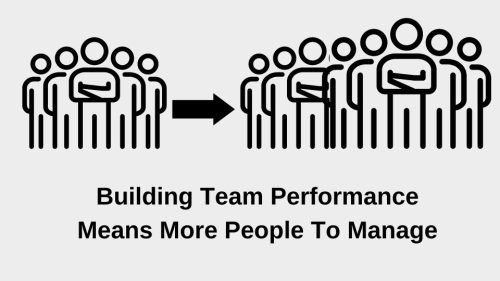
1. Set clear expectations with the team
If team members don’t know exactly what expectations are being placed on them, they are much less likely to meet or exceed those expectations.
To reach targets, a team needs to collectively meet expectations through all the activities and projects it undertakes, so the overall targets are met or exceeded. Fairly straightforward. Getting each team member to understand, accept and live those expectations is a little trickier.
Two different approaches to setting clear expectations or objectives, each with their pros and cons are:
- You can tell the team what your expectations are
- You can ask the team to build the expectations with you
The traditional approach is for the manager to tell the team what their expectations are and then work to repeat and reinforce those expectations through their actions and decisions. This method works and is good when quick action is needed such as turning around performance. The expectations set remain yours and the team may or may not buy into them.
A better way of setting expectations is to coach the team, getting their input and collectively setting expectations which align with reaching the team objectives. This approach takes longer and uses coaching skills which not every manager has. The benefits are that the expectations belong to everyone. The team is much more likely to enforce these expectations amongst themselves which makes your job much easier.
Do take the team through the purpose behind the goals that have been set. Giving context and talking to the why is motivational and empowering for team members and is another way to develop team performance.
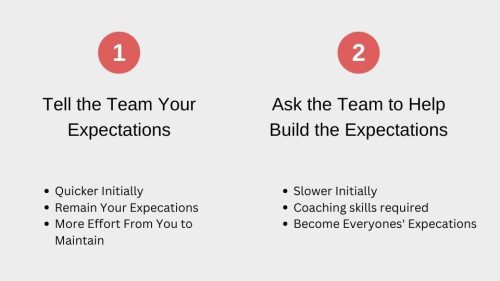
2. Create Visibility & Measurement
Creating visibility of progress against goals will help the team and individuals own their part in hitting those goals. Visibility is such an important method to build great team performance so do put the time into organising it.
For example, if you don’t know you are behind, then you won’t put in that extra bit of effort to catchup. If you don’t know that your colleague Steve hasn’t done half the activities, he needs to so the team can make progress, you won’t prod him. If you don’t know Sarah is miles ahead because of her hard work put in, you won’t congratulate and thank her.
Use Peer Pressure
Visibility and measurement of performance creates significant peer pressure effects. No-one likes being at the bottom or seen to be not pulling their weight.
So work out several key performance indicators that capture activity and milestones that will drive your team reaching their goals. Measure your progress against these KPIs.
Talk about progress in your one-on-one meetings with team members. Talk about them in your team meetings. Put the KPIs on a whiteboard on a wall. Send an email around sharing progress. Keep progress visible.
By regularly talking about the KPIs and the progress being made, you will keep the key activities in everyone’s mind and increase the team’s confidence in reaching its goals.
Creating visibility and measurement of progress is a great way of driving accountability.
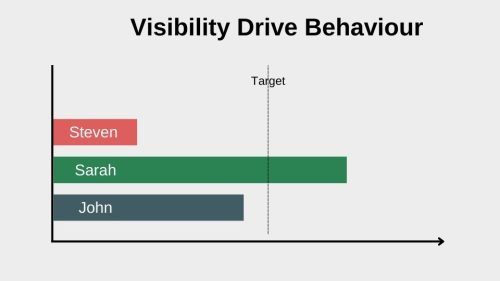
3. Provide support and development for each team member
One of the best ways to build team performance I have found is to support and develop each team member. Aside from the direct benefits of increasing skills, you are also building up
- A lot of goodwill from the team
- Increased motivation (who doesn’t want to work for a manager keen on moving team careers forward)
- Providing yourself a great platform to stay close to what is happening in the team without a hint of micromanagement
Proving support and development directly to team members is a great method to build great team performance.
As a manager, you have a significant number of skills and a large amount of experience that will directly benefit your team members. Make the time to mentor your direct reports during your weekly one-on-one meetings. Use this time to talk through their challenges and problems. Help them learn faster by sharing with them what you know works and help them avoid what doesn’t work.
As manager of the team, you are also in a great position to organise peer to peer training, lunchtime training sessions, organise talks from other managers around the business or any route you can think of to increase the skills of the team.
Improve problem solving & decision making skills
Talk through their problems with them. Help them learn faster by sharing your experience with them. Do everything that you can to leverage your knowledge and skills into the team.
To get the best performance from the team, aim to help team members become leaders themselves. Leaders are the agents of change and improvement. Help them to grow in confidence and skills. Help them develop their problem solving, decision making and their judgement.
Don’t punish mistakes
If you team is truly learning, they will make mistakes. Be constructive when talking about failure. Treat it as a learning experience rather than a reason to criticise or complain. Doing so risks the team taking no risks which will limit change and improvement. Staying close to what each team member is doing, and you will significantly limit the impact of any mistakes.
Provide support to employees and help them learn in any way you can. Doing so is absolutely in your interests and a very important method to develop great team performance.
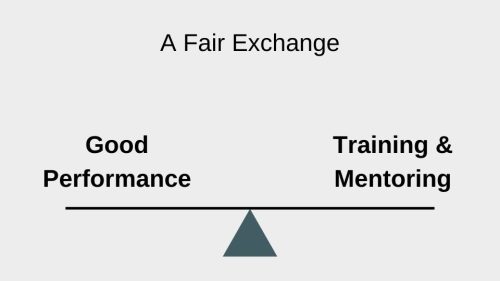
4. Take action with those underperforming or being difficult.
Underperformers and those being difficult are a significant danger to team performance. Outside the direct impact, there is also the
- Impact on morale,
- Your credibility as a manager and
- What is deemed acceptable as defined by your actions.
If you let underperformance or poor behaviour continue, you are signalling that this is acceptable. Increasing team performance is nearly impossible. You can quickly enter a vicious downward circle. The good performers leave for better teams and better opportunities. Your credibility as a manager is blown. You get the picture.
This is why taking action, when faced with these problems, is such an essential method to build great team performance
You Must Take Action
Making sure that your actions are fair and reasonable without letting the individuals off the hook is equally important. Take action and give the individual a chance and the support to improve. Let them choose improvement or being removed from the team through performance improvement plans and disciplinary processes.
An example of escalating action that you could take:
- Have a conversation with them in private and ask them to improve/change
- Have a second conversation (in private) asking for change and outline the consequences (e.g. PIP)
- Start an informal Performance Improvement Plan (PIP). Informal does not include HR
- Move to a formal PIP
- Start a disciplinary process
You might want to need to jump steps depending on the situation. You will also need to follow your company policy and legal requirements as you get more formal.
Take action early to reinforce the expectations you have agreed with the team and protect the rest of the team from disruption or having to cover for an underperformer.
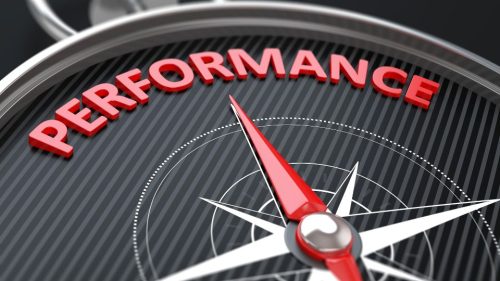
5. Use external Recruiting to increase team skill levels
As expectations rise of what is okay performance and good performance within the team, some team members will choose to leave. They will go to other roles with lower expectations and an easier life.
Usually these people are those that are either
- Struggling to operate at the higher expectation levels
- Or just don’t want to operate at these levels (lower work ethic)
For the avoidance of doubt, this is not about working harder, but learning new skills, taking more responsibility, being more accountable, etc.
A Great Opportunity
This gives you a great opportunity to recruit replacement team members with more energy, a higher level of skills and experience, and those personalities more likely to help you drive improved performance.
Always seek to increase the average skill level and increase the energy within the team with each new recruit. The increasing standards and expectations will push all team members up a little bit, thus improving the overall team performance.
New individuals into the team will also be much more likely to challenge the status quo and ask valid questions about what is done and how it is done. Use these periods to find better ways of approaching the tasks and projects the team does. Use new ideas that new people bring to push through positive change.
Using external recruitment to increase skill and energy levels is a vital method to build great team performance.
In summary
There is a huge amount you can do to build great team performance through the actions you take as a manager. Consistency of your actions and decisions will reinforce the expectations that you have set with the team. Making the time and effort to develop the team and improve their skills is worth every minute through improved performance, loyalty, and goodwill from the team.
Dealing with underperformers and difficult staff in a positive fair way is a must and recruitment is another great way of increasing performance in the team.
Put into practice all these methods to build great team performance. The team’s performance is usually a reflection of the manager’s performance. Your team can be a great advert to your manager, your peers and the leadership team of your abilities and skills.
Make the most of building great team performance for your own career progression.

I have turned around multiple teams (10-35 people) using exactly these methods to build team performance. I know they work in pretty much any team situation when applied well and fairly with team members.
At heart, the methods are about looking after, supporting, and developing the majority of people in the team and ensuring as many blockers are removed as possible. It is very hard not to get improved performance as a result.
Do try each of these methods.






